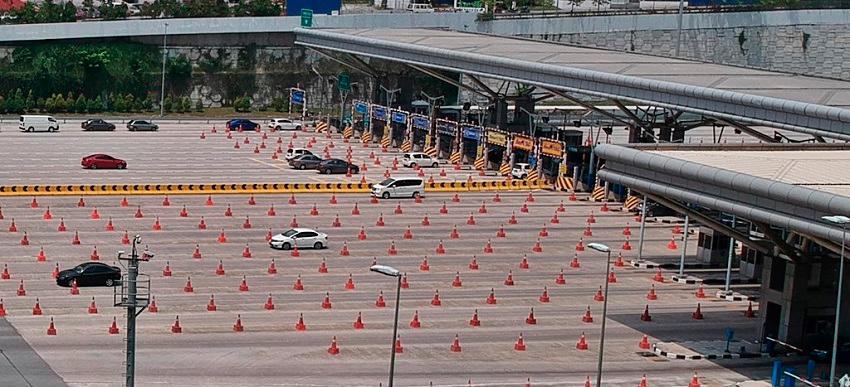THE Ministry of Works (KKR) is set to present a Cabinet paper next month on the future direction of the Multi-Lane Free Flow (MLFF) toll collection system. This follows a decision to cease ongoing negotiations with highway concessionaires involved in the project.
Deputy Minister of Works, Datuk Seri Ahmad Maslan, confirmed the move, stating that the ministry had issued formal notices to concessionaires, informing them of the decision to discontinue discussions.
“The negotiation process has not continued because today (yesterday) marks the final day. We have sent letters to the relevant companies to halt negotiations,” Ahmad Maslan explained during a press conference.
He further added, “The Ministry will prepare and submit a Cabinet paper on the direction of the MLFF to the Cabinet in January 2025 for review and approval.”
The announcement was made during a media briefing at the Malaysian Special Search and Rescue Team (SMART) Headquarters in Pulau Meranti. The event also included an inspection of the construction site for a disaster simulation project. Selangor JKR Director, Shukri Ishak, and SMART Commander Senior Fire Chief, Mohd Khairul Jamil, were among those in attendance.
Challenges in MLFF Implementation
The implementation of the MLFF system has faced significant hurdles, primarily due to governance issues. On December 11, the Minister of Works, Datuk Seri Alexander Nanta Linggi, acknowledged the complexities involved in securing consensus from various parties, particularly the highway concessionaires.
According to Nanta Linggi, 13 out of 33 concessionaires had expressed opposition to the proposed system. Additionally, the ministry encountered difficulties in drafting the necessary legislation to support MLFF implementation.
Despite these obstacles, the government remains committed to introducing the MLFF system, which eliminates traditional toll barriers and allows seamless toll payments.
A Step Toward Modernised Toll Collection
The MLFF system represents a transformative approach to toll collection, enabling vehicles to pass through toll plazas without stopping or slowing down. This advanced system, already implemented in neighbouring countries such as Indonesia, Thailand, and Singapore, aims to streamline toll transactions and reduce traffic congestion.
KKR’s push for MLFF aligns with the government’s broader agenda to modernize infrastructure and enhance road user convenience. If approved by the Cabinet, the new system could pave the way for a significant overhaul of Malaysia’s toll collection landscape.
The upcoming Cabinet review in January 2025 will determine the next steps for this ambitious initiative, which has the potential to redefine the country’s toll payment system.









